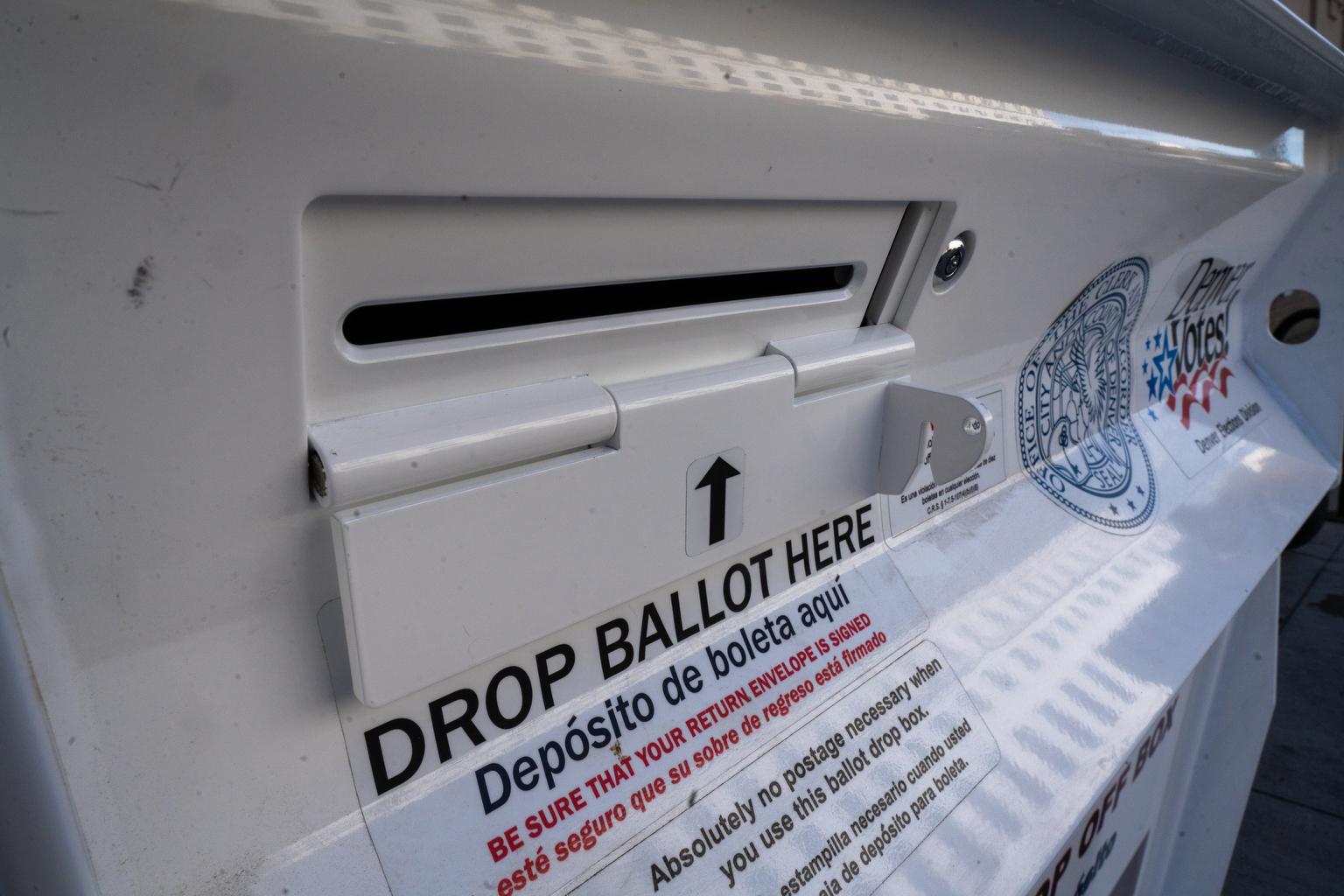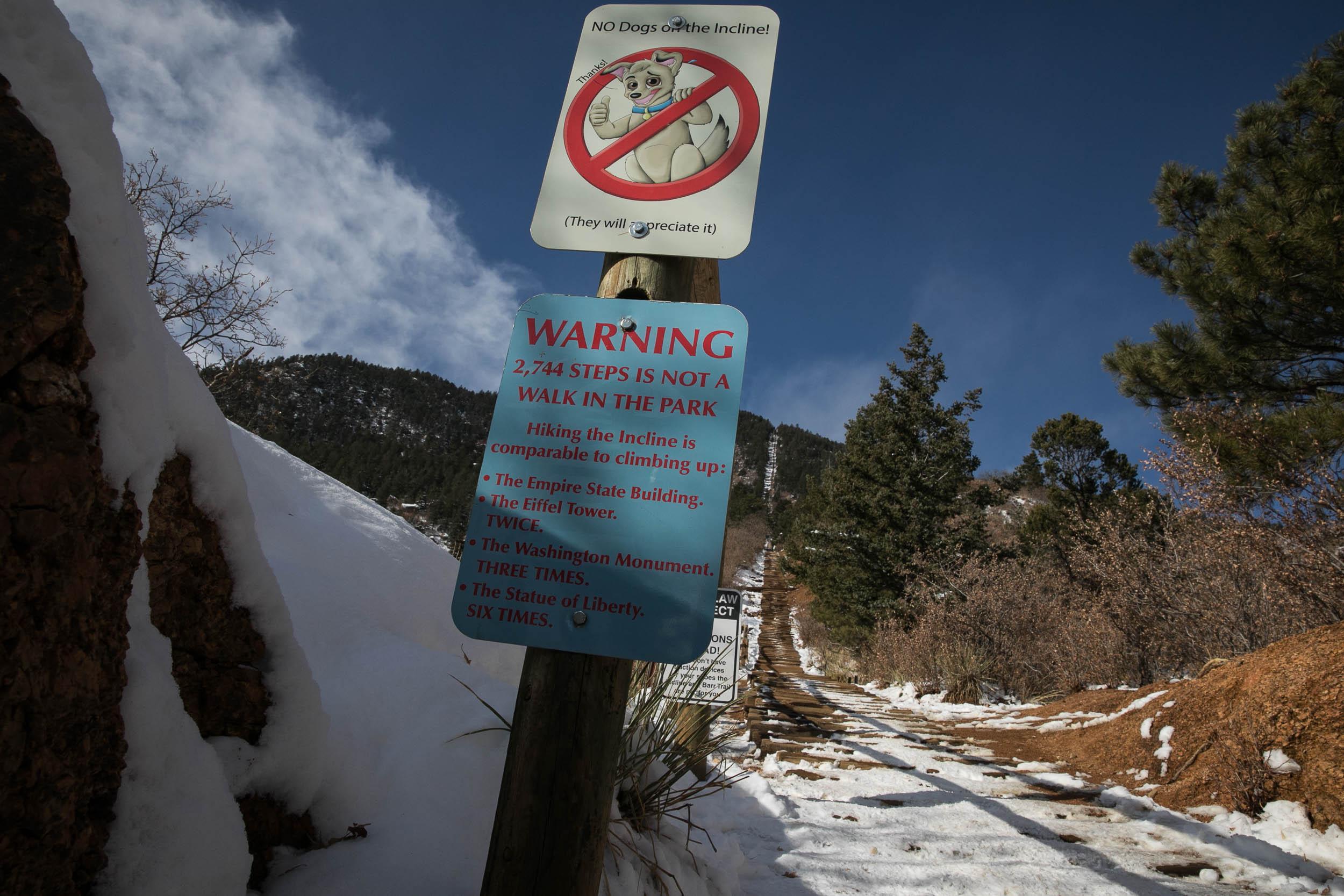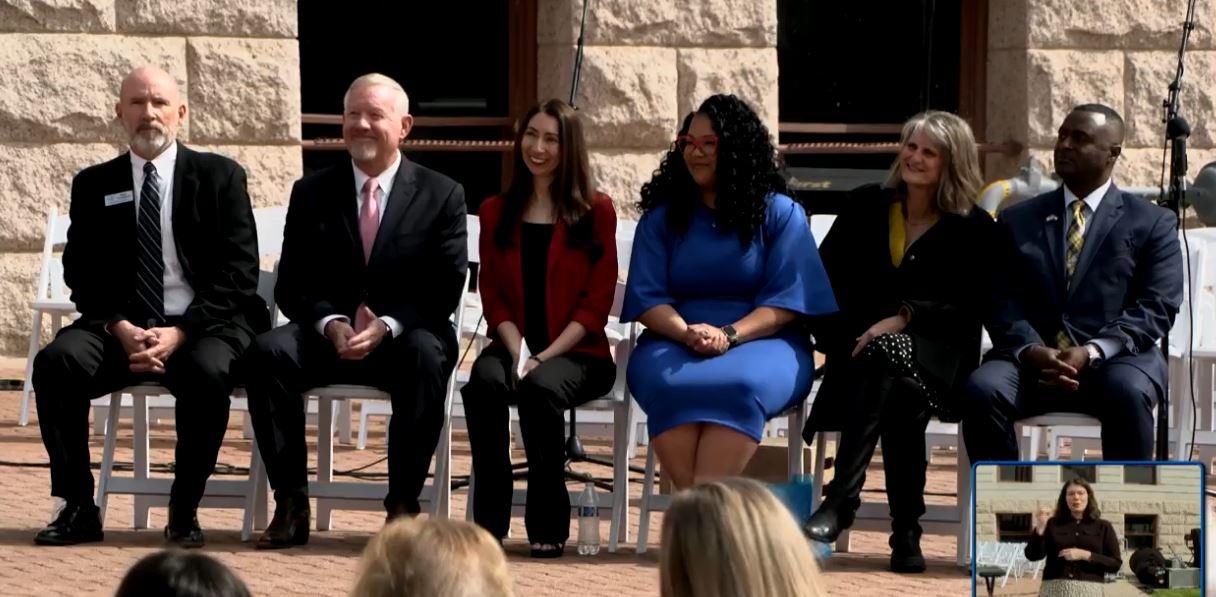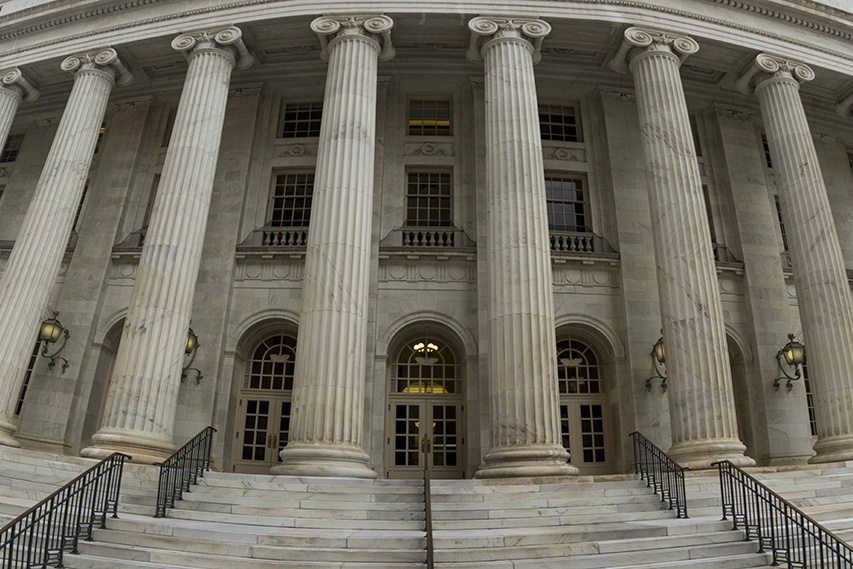
Updated at 10:06 a.m. on Nov. 7, 2024.
Colorado’s biannual exercise in direct democracy will get a real workout this year, with voters asked to weigh in on more than a dozen changes to the state’s laws and constitution. Half of those questions were put on the ballot by state lawmakers and the rest came from interest groups outside the Capitol.
Here’s how they fared:
✔️ Passed — Amendment G: Allow more disabled veterans to access a state property tax exemption
This constitutional amendment expands the number of veterans living with a disability who qualify for a property tax exemption for a portion of the value of their primary residence. Until now, what’s known as the homestead exemption was limited to veterans with a fully permanent service-related disability. Under Amendment G, it will include veterans with a significant service-connected disability that makes them unable to work, what the Veterans Administration classifies as having “individual unemployability” status. Nonpartisan legislative staff estimate this change will cover around 3,400 additional veteran homeowners.
As an amendment, this needed 55 percent of the vote to pass.
✔️ Passed — Amendment H: Setting up a judicial discipline board
Lawmakers asked voters to change the rules for how Colorado handles misconduct within the judicial branch. This amendment sets up a new independent judicial discipline board, made up of judges, attorneys and members of the public. The board will conduct disciplinary hearings and hear appeals of informal remedial sanctions handed down by the Commission on Judicial Discipline.
As an amendment, this needed 55 percent of the vote to pass.
✔️ Passed — Amendment I: No bail for defendants in first-degree murder cases
This constitutional amendment makes first-degree murder suspects ineligible for bail, as long as prosecutors can show they have a strong enough case. Currently, the state constitution says that only people charged with “capital offenses” can be denied bail. When the state had the death penalty, that applied to anyone charged with first degree murder (which was potentially punishable by death). But last year, the Colorado Supreme Court ruled that since Colorado has done away with capital punishment, first-degree murder no longer constitutes a capital offense. In practical terms, changing the wording of the constitution returns the state to the bail policies it had in place before lawmakers repealed the death penalty.
As an amendment, this needed 55 percent of the vote to pass.
✔️ Passed — Amendment J: Remove the same-sex marriage ban from the state constitution
This referred measure strikes out language in the state constitution that reads: “Only a union of one man and one woman shall be valid or recognized as a marriage in this state.” Colorado voters put the gay marriage ban in the state constitution in 2006.
Because Amendment J removes language from the state constitution, it only needed 50 percent of the vote to pass.
❌ Failed -- Amendment K: Earlier deadlines to set the ballot
This constitutional amendment would have moved up by one week the deadline for citizen initiatives to file their petition signatures. The same change would have also applied to the Declaration of Intent judges and justices must file if they seek to run for retention. Additionally, it required nonpartisan research staff to publish the official text and titles of ballot measures a month earlier.
As an amendment, it would have needed 55 percent of the vote to pass.
✔️ Passed — Amendment 79: Enshrine legal abortion in the state constitution
This amendment cements a right to legal abortion in the state constitution and constrains future legislatures from passing laws that limit access. It also lifts a ban on public funding for abortion that voters approved 40 years ago. This could allow Colorado to cover more abortions under Medicaid and for the state and local governments to add abortion coverage to their employee health insurance plans.
This race was called by the Associated Press around 8:30 p.m. on election night. As an amendment, it needed at least 55 percent of the vote to pass.
❌ Failed -- Amendment 80: Constitutional right to school choice
This one-paragraph amendment would enshrine in the state constitution the right of parents to choose the type of education to give their children, from kindergarten to 12th grade, including neighborhood, charter and private schools, homeschooling, open enrollment option and “future innovations in education.”
As an amendment, this needed 55 percent of the vote to pass.
❌ Failed -- Proposition 127 — Ban the sport hunting of big cats
This initiative would have ended the hunting seasons for mountain lions and bobcats in Colorado, and barred the state from ever allowing lynx hunting (lynx, which were reintroduced in Colorado in 1999, are still considered endangered by the state). Big cats could still have been killed by state or federal employees as a part of population management efforts or, with state permission, by ranchers to prevent livestock depreciation. People who accidentally hit an animal with their car would not have been penalized.
✔️ Passed — Proposition 128: Parole eligibility for people convicted of violent crimes
Under Prop. 128, people convicted of certain offenses will have to serve at least 85 percent of their sentence before becoming eligible for parole or early release for good behavior. That’s an increase from current law, which allows inmates to apply for discretionary parole after they’ve served at least three-quarters of their sentence, or even sooner if they’ve earned time off through good behavior while incarcerated. The list of covered crimes includes murder, sexual assault, aggravated robbery, and serious cases of assault, kidnapping, arson and burglary.
✔️ Passed -- Proposition 129: Creating the profession of Veterinary Professional Associates
The measure creates a new mid-level position — between a vet technician who has a two-year associate’s degree and a veterinarian who has eight or more years of education — called a veterinary professional associate, or VPA. VPAs would be people with masters degrees in veterinary care who could diagnose animals, perform routine surgeries, and order and perform tests and procedures under the supervision of a licensed veterinarian.
✔️ Passed -- Proposition 130: $350 million in state funding for law enforcement
This measure would require the state government to set aside $350 million in a dedicated fund for law enforcement. The money would go toward giving grants to local departments to help with hiring, training and retaining officers, as well as a new $1 million death benefit for the families of law enforcement killed on the job.
❌ Failed — Proposition 131: All candidate primaries and ranked-choice voting
The way Colorado conducts its state and federal elections would have changed in two significant ways under this initiative:
- No more party primaries: Instead of having each party pick its own candidate for the general election, all qualified contenders in a given race would be placed on the same primary ballot. The top four vote-getters, regardless of party affiliation, would move on to the general election.
- Ranked-choice voting for general elections: Ahead of the November election, voters would get a ballot listing the four candidates. Instead of selecting just one, voters would rank some or all of them in order of preference. All voters' rankings would be combined in a mathematical process to determine the winner. This version of ranked-choice voting is also known as “instant runoff voting.”
Supporters conceded defeat around 10 p.m. on Tuesday.
✔️ Passed — Proposition JJ: Allow the state to keep all of the taxes it’s collected from sports betting
This allows Colorado to keep and spend all of the tax revenue it collects from sports betting. When voters approved sports betting five years ago, the state estimated it would yield about $29 million in tax revenue each year. However, state economists now believe the 10 percent tax on betting operations will bring in significantly more than that in the coming years. The additional money will go to water conservation and protection projects.
✔️ Passed -- Proposition KK: A new excise tax on gun and ammunition sales
This proposal imposes a new 6.5 percent excise tax on gun and ammunition sales, with the money raised by the tax going to behavioral health supports for veterans and youth, as well as school safety and gun violence prevention programs and services for victims of domestic violence and other violent crimes.








